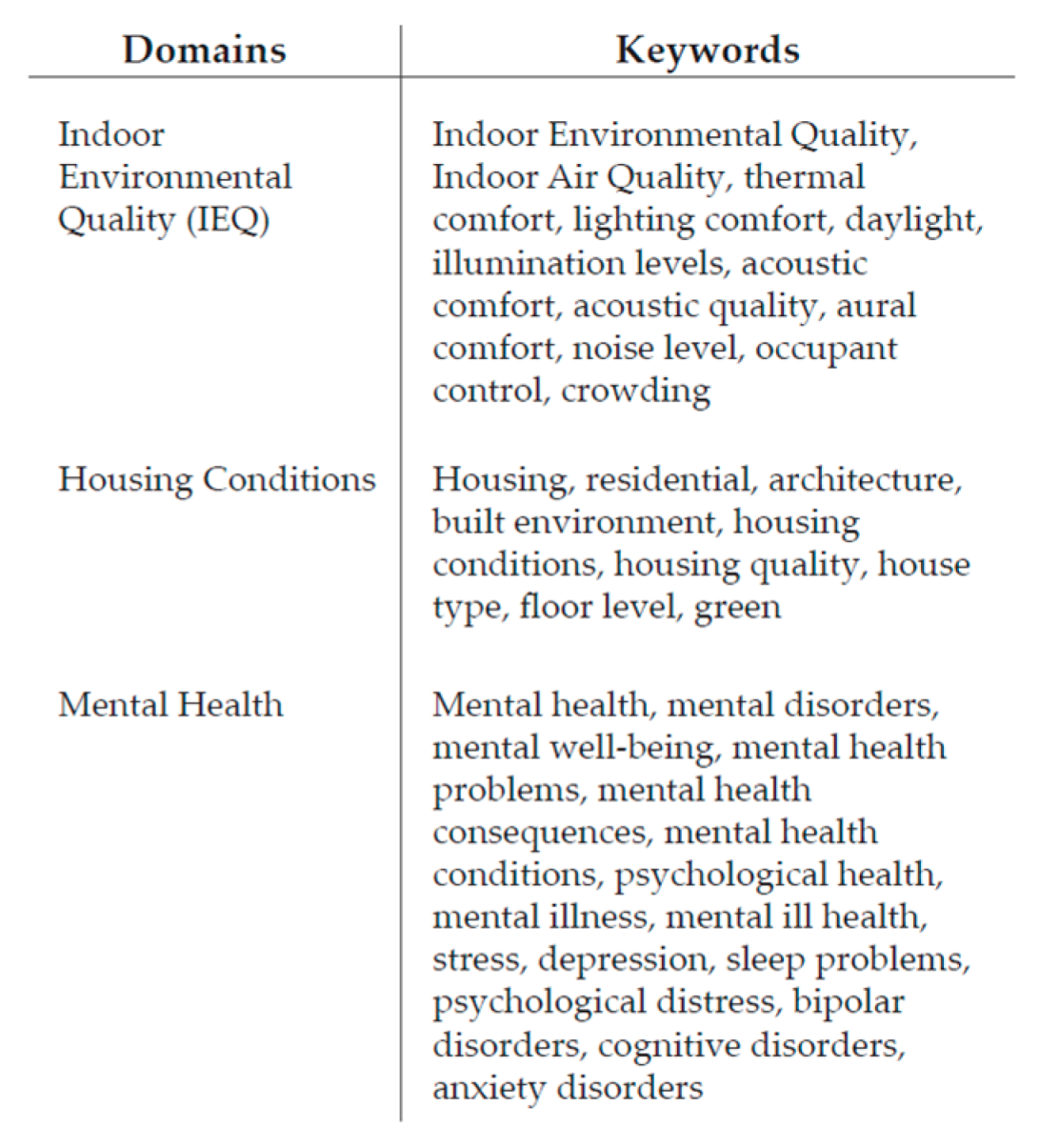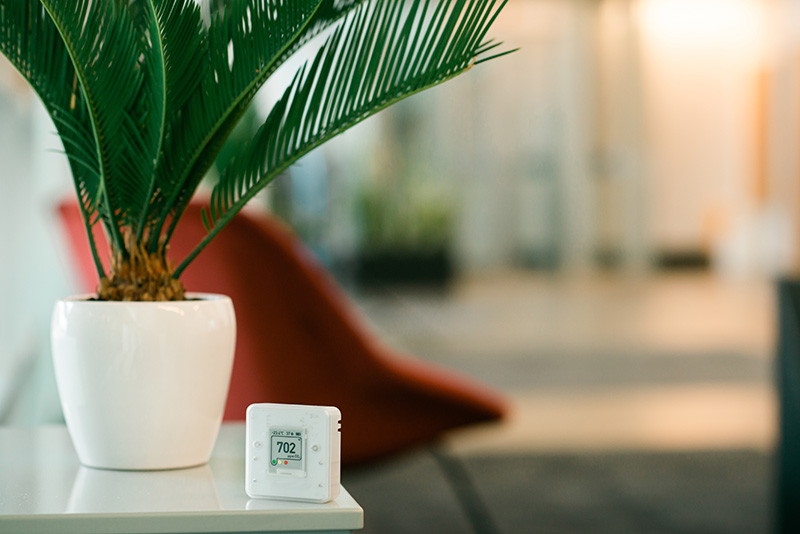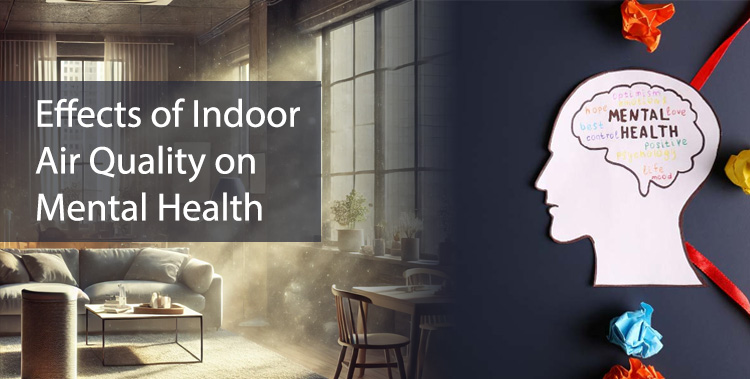Indoor air quality directly impacts mental health. Poor air quality can lead to stress and anxiety.
Many factors contribute to indoor air quality. These include ventilation, pollutants, and humidity. When air quality is low, it can affect your mood and mental state. Breathing clean air is crucial for overall well-being. Studies show a link between indoor air pollution and mental health issues.
People exposed to poor air often feel more stressed and anxious. Improving indoor air quality can lead to better mental health. In this blog, we will explore how air quality affects the mind. We will discuss ways to improve your indoor environment. Stay with us to learn more about this important topic.

Credit: www.mdpi.com
Introduction To Indoor Air Quality
Indoor air quality (IAQ) refers to the air inside buildings. This includes homes, offices, and schools. Good IAQ is crucial for our health and well-being. Poor indoor air can lead to serious health issues. Surprisingly, it can also affect our mental health.
Importance Of Air Quality
Air quality is essential for a healthy life. Clean air helps our bodies function properly. It also improves our mood and cognitive abilities. On the other hand, polluted air can cause headaches, fatigue, and stress. Over time, this can lead to mental health problems.
Common Indoor Pollutants
Several pollutants can affect indoor air quality. Here are some common ones:
- Dust: Tiny particles that can cause allergies and asthma.
- Mold: Fungi that grow in damp areas, leading to respiratory issues.
- Pet dander: Tiny flakes of skin from pets that can trigger allergies.
- Chemical pollutants: Found in cleaning products, paints, and furniture.
- Carbon monoxide: A colorless, odorless gas from gas stoves and heaters.
| Pollutant | Source | Health Effects |
|---|---|---|
| Dust | Furniture, carpets | Allergies, asthma |
| Mold | Damp areas | Respiratory issues |
| Pet dander | Pets | Allergies |
| Chemical pollutants | Cleaning products, paints | Headaches, fatigue |
| Carbon monoxide | Gas stoves, heaters | Fatigue, confusion |

Credit: ardmorefreshair.com
Link Between Air Quality And Mental Health
Indoor air quality plays a crucial role in our overall health. But did you know it also affects our mental well-being? Poor air quality can contribute to anxiety, depression, and other mental health issues. Understanding this link can help us create healthier indoor environments.
Scientific Studies
Research has shown a strong connection between air quality and mental health. Several studies have explored how pollutants affect our brain function and emotional state. These studies provide valuable insights into the impact of indoor air on our mental health.
| Study | Findings |
|---|---|
| Study A | Higher levels of indoor pollutants linked to increased anxiety. |
| Study B | Exposure to certain chemicals led to cognitive decline. |
Key Findings
- Pollutants like carbon monoxide and formaldehyde can affect mood.
- Poor ventilation increases the risk of mental health problems.
- Particulate matter can lead to stress and anxiety.
- Ensure proper ventilation.
- Use air purifiers.
- Maintain clean and dust-free spaces.
By improving indoor air quality, we can support better mental health. Clean air means a healthier mind.
Symptoms Of Poor Indoor Air Quality
Poor indoor air quality can significantly impact your overall well-being. You may experience various symptoms, both physical and mental. Recognizing these symptoms early can help you take steps to improve your indoor environment.
Physical Symptoms
Physical symptoms are often the first sign of poor indoor air quality. You might notice frequent headaches or dizziness. These can be warning signs. Respiratory issues are also common. Persistent coughing, sneezing, or shortness of breath can develop. Skin irritation, such as rashes or dryness, might occur. Watery or itchy eyes are other indicators. Pay attention if these symptoms persist indoors.
Mental Health Symptoms
Indoor air quality doesn’t only affect your body. It can impact your mental health too. Poor air quality can lead to increased stress and anxiety. You might feel more irritable than usual. Concentration and focus can decline. Tasks that were once easy become challenging. Sleep disturbances are another symptom. Poor sleep can lead to fatigue and mood swings. These symptoms can affect your daily life.
Sources Of Indoor Air Pollution
Indoor air pollution is a significant factor that affects mental health. Knowing its sources can help improve indoor air quality. Let’s explore some common sources.
Household Items
Many everyday household items can contribute to indoor air pollution. These items release harmful chemicals and particles into the air. Some common sources include:
- Cleaning products: Many contain volatile organic compounds (VOCs).
- Air fresheners: These often release chemicals that can irritate the lungs.
- Paints and solvents: These contain VOCs and other harmful chemicals.
- Personal care products: Items like hairsprays and perfumes release pollutants.
Reducing the use of these items or choosing natural alternatives can improve air quality.
Building Materials
Another significant source of indoor air pollution is building materials. Many materials used in construction and renovation release pollutants. Some common sources include:
| Material | Pollutant |
|---|---|
| Asbestos | Asbestos fibers |
| Insulation | Formaldehyde |
| Paints | Lead, VOCs |
| Flooring | Formaldehyde, VOCs |
Choosing low-VOC or non-toxic materials can reduce indoor air pollution.
Understanding these sources can help you take steps to improve indoor air quality. Better air quality can lead to better mental health and overall well-being.
Impact On Different Age Groups
Indoor air quality significantly impacts mental health across different age groups. Each age group experiences unique challenges and effects due to varying sensitivities and developmental stages. Understanding these impacts can help in creating healthier indoor environments for all.
Children And Infants
Children and infants are particularly vulnerable to poor indoor air quality. Their developing brains and bodies are more sensitive to pollutants. Exposure to contaminants can lead to cognitive delays and behavioral issues. Studies show a link between poor air quality and increased rates of ADHD and anxiety in children. Clean air is crucial for their healthy development.
Adults And Seniors
Adults and seniors also face significant impacts from indoor air pollution. Poor air quality can exacerbate stress, anxiety, and depression in adults. For seniors, the effects can be even more severe. Respiratory issues and cognitive decline are common among older adults exposed to pollutants. Ensuring good air quality can improve mental well-being and overall health for these groups.

Credit: www.hibouair.com
Improving Indoor Air Quality
Enhancing the air quality in your home can significantly boost your mental health. Clean air helps you think clearly, stay focused, and feel more relaxed. Below, we provide practical tips to improve indoor air quality.
Ventilation Tips
Proper ventilation is key to maintaining healthy indoor air. Here are some tips:
- Open windows: Fresh air helps reduce indoor pollutants.
- Use exhaust fans: They remove moisture and odors from kitchens and bathrooms.
- Install air vents: Ensure each room has adequate air exchange.
- Regular maintenance: Clean and service HVAC systems annually.
Air Purification Methods
Air purifiers can further improve indoor air quality. Consider these options:
- HEPA filters: Capture 99.97% of airborne particles.
- Activated carbon filters: Remove gases and odors.
- UV-C light purifiers: Kill bacteria and viruses.
- Ionizers: Reduce allergens and dust.
By combining good ventilation and air purification, you can create a healthier living space. This helps your mind stay sharp and your mood stay positive.
Preventive Measures
Ensuring good indoor air quality is crucial for our mental health. Poor air quality can lead to increased stress, anxiety, and other mental health issues. By taking preventive measures, you can create a healthier living environment.
Regular Maintenance
Regular maintenance of your HVAC system is essential. Clean air filters help remove pollutants from the air. Schedule professional inspections at least twice a year. This keeps your system running efficiently.
- Change air filters every 1-3 months.
- Clean air ducts to prevent dust buildup.
- Monitor humidity levels to avoid mold growth.
Healthy Habits
Adopting healthy habits can significantly improve indoor air quality. Simple actions make a big difference.
- Ventilation: Open windows regularly to let fresh air in.
- Plants: Use indoor plants to purify the air.
- Cleaning: Vacuum and dust your home frequently.
- No Smoking: Avoid smoking indoors to reduce pollutants.
Implementing these preventive measures can greatly enhance your indoor air quality. This, in turn, supports better mental health and overall well-being.
Frequently Asked Questions
What Is Indoor Air Quality?
Indoor air quality refers to the cleanliness and healthiness of the air inside a building. It includes factors like pollutants, ventilation, and humidity levels.
How Does Poor Air Quality Affect Mental Health?
Poor indoor air quality can lead to issues like anxiety, depression, and cognitive impairments. Pollutants and lack of oxygen can negatively impact brain function.
What Pollutants Harm Indoor Air Quality?
Common indoor pollutants include mold, dust, pet dander, and chemicals from household products. These can worsen mental and physical health.
How Can I Improve Indoor Air Quality?
Improve indoor air quality by using air purifiers, ventilating rooms regularly, and reducing the use of chemical cleaners. Houseplants can also help.
Conclusion
Improving indoor air quality can boost mental well-being. Clean air helps you think clearly. It reduces stress and promotes better sleep. Simple changes, like using air purifiers, can make a big difference. Plants also help filter the air. Regular ventilation keeps your home fresh.
Pay attention to your indoor environment. Your mind and body will thank you. Small steps lead to healthier living spaces. Breathe easy and stay happy!
Rakib Sarwar is a Registered Pharmacist and a reputed health and wellness blogger. He has a great interest in Air purifiers.
